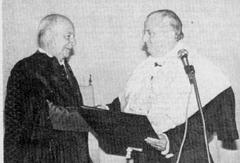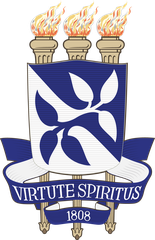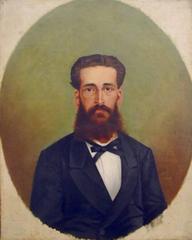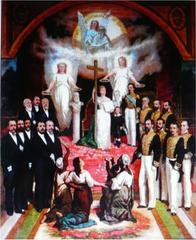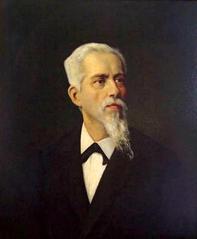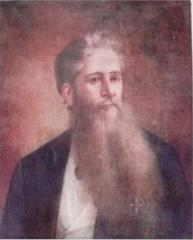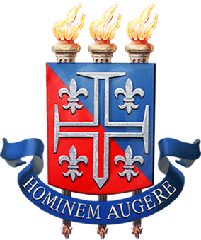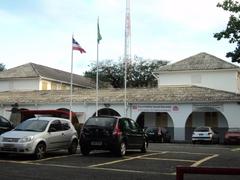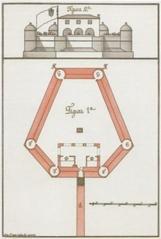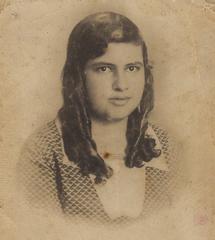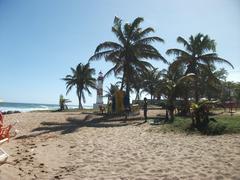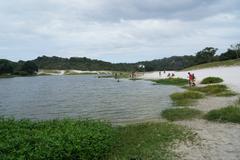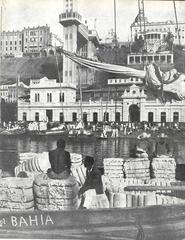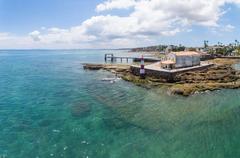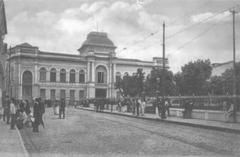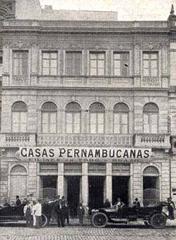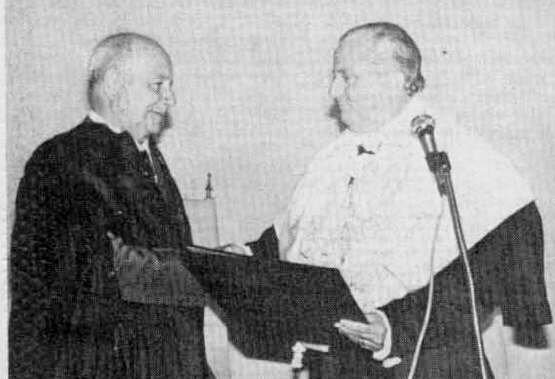
Federal University of Bahia (UFBA) Visiting Guide: Tickets, Hours, and Essential Information
Date: 14/06/2025
Introduction
The Federal University of Bahia (Universidade Federal da Bahia, UFBA) is a renowned institution in Salvador, Brazil, celebrated for its academic excellence and deep cultural roots. Founded in 1808, UFBA is not only the oldest higher education institution in Brazil but also a vibrant hub of Afro-Brazilian heritage, architectural marvels, and scholarly innovation. Whether you’re a prospective student, a cultural traveler, or a history enthusiast, visiting UFBA provides an immersive experience into Brazil’s academic and cultural landscape (Wikiwand).
This detailed guide covers UFBA’s history, visitor information, campus highlights, safety tips, and practical advice to help you make the most of your visit.
Table of Contents
- Historical Foundations and Evolution
- Educational Impact and Academic Excellence
- Cultural and Social Significance
- Visitor Information: Hours, Tickets, and Tours
- Practical Tips for Visitors
- Campus Attractions and Points of Interest
- Events and Cultural Activities
- Safety, Accessibility, and Transportation
- Frequently Asked Questions (FAQ)
- Conclusion and Final Tips
- Sources and Links
Historical Foundations and Evolution
Origins and Growth
UFBA’s story began with the creation of the Medical School of Bahia in 1808, a direct result of the Portuguese royal family’s relocation to Brazil. Over the 19th and early 20th centuries, the university expanded by integrating various pioneering faculties, including Pharmacy, Fine Arts, Law, and Engineering. Its official designation as a federal university in 1946 marked its place as Bahia’s premier academic institution (Wikiwand).
Academic Expansion
Today, UFBA serves over 50,000 students across its Salvador and Vitória da Conquista campuses, offering 57 undergraduate programs, 82 postgraduate courses, and over 100 specialization tracks (EduRank).
Educational Impact and Academic Excellence
UFBA is consistently ranked among Brazil’s top universities, recognized for its breadth of research and international collaborations. It ranks 11th in Brazil and 646th globally, with notable research in fields such as Medicine, Humanities, Engineering, and Biological Sciences. The university’s output includes more than 50,000 academic publications and nearly 600,000 citations, underscoring its scholarly significance (EduRank).
Its international network spans 32 countries, enhancing its global academic presence and fostering cross-cultural research on issues like sustainable development and public health.
Cultural and Social Significance
UFBA is integral to Salvador’s identity, particularly its Afro-Brazilian heritage. The university not only preserves local traditions through academic and cultural programs but also engages in initiatives that address social needs such as education, healthcare, and community development (National Geographic; Wikiwand).
Visitor Information: Hours, Tickets, and Tours
Campus Visiting Hours
- General Hours: Monday to Friday, 8:00 AM – 6:00 PM.
- Museum Hours: Afro-Brazilian Museum and Museum of Sacred Art: Monday to Friday, 9:00 AM – 5:00 PM.
Entrance and Tickets
- Campus Access: Free entry to most university buildings.
- Museums: Small admission fees (usually $2–$5 USD) for museums and special exhibitions (whichmuseum.com).
Guided Tours
Guided tours focusing on UFBA’s history, architecture, and cultural programs are available. These can be arranged through the university’s visitor centers or International Relations Office. Advance booking is recommended, especially for group or thematic tours.
Photographic Opportunities
Don’t miss photographing the historic Medical School of Bahia, the colonial facades around Pelourinho, and the vibrant university plazas. These sites offer a visual summary of both Salvador’s and UFBA’s architectural and cultural evolution.
Accessibility and Transportation
- Getting There: Main campuses in Canela, Ondina, Federação, and Pelourinho are accessible by public bus, taxi, or ride-hailing apps like Uber and 99.
- Accessibility: Key buildings feature ramps and elevators. Visitors with mobility needs should contact the International Relations Office to discuss specific accessibility requirements.
Practical Tips for Visitors
- Check Official Updates: Refer to UFBA’s website for real-time information on hours, events, and visitor protocols.
- Learn Basic Portuguese: English is not widely spoken; translation apps or phrasebooks are helpful.
- Combine Destinations: Pair your campus visit with nearby attractions like Pelourinho, Lacerda Elevator, and local museums.
- Safety: Keep valuables secure, use trusted transportation, and avoid walking in unfamiliar areas after dark.
- Download the Audiala App: For audio guides and event notifications across UFBA and Salvador’s cultural sites.
Campus Attractions and Points of Interest
Afro-Brazilian Museum (Museu Afro-Brasileiro - MAFRO)
Situated in Pelourinho, this museum houses over 1,800 artifacts that illuminate the African legacy in Brazilian culture, including art, religious objects, and musical instruments. It’s a vital stop for understanding the Afro-Brazilian diaspora and its impact (whichmuseum.com; mytravelation.com).
- Hours: Monday to Friday, 9:00 AM – 5:00 PM
- Tickets: $2–$5 USD
Alt text suggestion: “Entrance of the Afro-Brazilian Museum at Federal University of Bahia with cultural exhibits”.
UFBA Dance School & Arts Infrastructure
Known for its dynamic Dance School and arts programs, UFBA hosts national congresses and public performances. These events are excellent opportunities to engage with Brazil’s contemporary arts scene (gotouniversity.com).
- Visitor Tip: Attend a public performance or open rehearsal for an authentic experience.
Historic and Academic Landmarks
Explore buildings such as:
- School of Medicine: Located in the historic center, reflecting colonial and baroque styles.
- School of Fine Arts, Law, and Polytechnic: Embodying the evolution of academic architecture in Bahia.
Campus Green Spaces
Relax in the university’s leafy courtyards and plazas, often animated by informal music and art displays. Try Bahian snacks from campus vendors for a local flavor.
Events and Cultural Activities
UFBA is an active host of cultural and academic events—including music festivals, art exhibitions, lectures, and Carnival participation. The university’s Center for Afro-Oriental Studies and School of Fine Arts regularly organize programs that highlight Afro-Brazilian traditions (mytravelation.com).
- Event Schedules: Refer to UFBA’s online calendar or check at the main entrance for up-to-date listings.
Safety, Accessibility, and Transportation
Safety
- Crime Awareness: Salvador ranks high for crime; exercise caution, avoid isolated areas, and use registered transport (Numbeo; Travellers Worldwide).
- Campus Security: UFBA grounds are generally safe by day. Stay within main areas and be vigilant.
Accessibility
- Mobility: Most main buildings are accessible; some historic sites have limited access due to architectural constraints.
- Visitor Assistance: English-language support is available at key visitor centers.
Transportation
- From the Airport: Use taxis or ride-hailing apps; public buses also serve the campus but may be less convenient for new visitors.
- Around Salvador: Major attractions are within walking distance or a short ride from UFBA.
Frequently Asked Questions (FAQ)
Q: What are UFBA’s visiting hours?
A: Most campuses are open Monday to Friday, 8:00 AM to 6:00 PM. Museums typically open 9:00 AM to 5:00 PM.
Q: Is there an entrance fee?
A: Campus entry is free. Museums and some events may charge a small fee.
Q: Are guided tours available?
A: Yes, through the visitor center or International Relations Office—advance booking is recommended.
Q: How do I get there from Salvador’s city center or airport?
A: By taxi, Uber, 99, or public bus. The university is near major city landmarks like Pelourinho.
Q: Is the campus accessible for people with disabilities?
A: Most major buildings are accessible, but some historic structures may have limitations.
Q: What languages are spoken?
A: Portuguese is primary; limited English support is available at visitor centers.
Conclusion and Final Tips
The Federal University of Bahia is more than an academic destination—it is a living testament to Salvador’s historical legacy and Brazil’s vibrant Afro-Brazilian culture. From its pioneering role in education to its contemporary impact in the arts and research, UFBA invites visitors to engage deeply with Brazil’s traditions, diversity, and innovation.
Plan your visit by:
- Checking official UFBA and museum websites for up-to-date hours and events.
- Booking guided tours in advance for the richest experience.
- Exploring Salvador’s cultural districts and savoring local cuisine.
- Prioritizing safety and accessibility during your travels.
For comprehensive visitor resources, download the Audiala app and follow UFBA on social media for the latest updates and cultural events.
Sources and Links
- Federal University of Bahia, 2025, Wikiwand
- Federal University of Bahia Rankings, 2025, EduRank
- Afro-Brazilian Museum, 2025, whichmuseum.com
- Federal University of Bahia Visitor Guide, 2025, gotouniversity.com
- Salvador Travel Guide, 2025, mytravelation.com
- Inside Guide to Salvador, 2025, National Geographic
- Salvador Safety and Crime Index, 2024, Numbeo
- Is Brazil Safe to Travel?, 2025, Travellers Worldwide
- Bahia Historical Sites, 2025, Bahia.ws
- African Culture in Brazil, 2025, Connect Brazil
